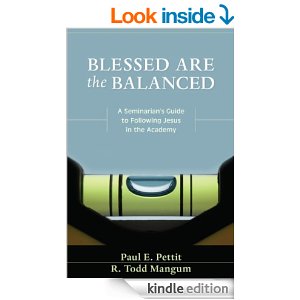I find this funny, but I suppose that is my writer’s humor showing through…

The most amazing thing is that that (ha ha!) final sentence is grammatically correct. Don’t you just love English?!
Liberating you from bad ideas about God
Stop relying on pastors and Bible teachers to tell you what the Bible means.
Read this book and learn to study the Bible for yourself. Available now on Amazon.
The book discussion questions with each chapter to make it perfect for a home study group. There is also a LONG appendix on how to understand the violent passages in Scripture.
I find this funny, but I suppose that is my writer’s humor showing through…

The most amazing thing is that that (ha ha!) final sentence is grammatically correct. Don’t you just love English?!
Yesterday we briefly looked at the Calvinistic understanding of Genesis 6:5 and Genesis 8:21, and how they use these verses to defend the doctrine of Total Depravity. In this post I want to look at how these verses can be understood differently.
Learning what these texts mean begins with seeing them in the context of the the flood, and the events leading up to the flood.

One primary point of Genesis 6–8 is to show what humanity has done with the knowledge of good and evil gained by eating the forbidden fruit in the Garden of Eden. It has not brought anything good, but has resulted in only evil, violence, death, and destruction.
This point is proved by the fact that Genesis 6:5 and Genesis 8:1 form an inclusio around the flood account of Genesis 6–8. An inclusio is a form of writing which emphasizes the point of a text by putting the main idea at the beginning and end of a text to serve as “bookends” around the text. These bookends draw the attention of the reader to the main theme of the text.
Since the account of the flood begins and ends with two verses about the universal sinfulness of humanity, these two texts are making a critical point about the reason and results of the flood. What is most surprising is the point that is made. Genesis 6:5 is written to provide an explanation for why the floodwaters came upon the earth. The idea is that the waters cover the earth because violence covered the earth (Gen 6:11).
Yet after the event of the flood, God says the most startling thing: Despite having nearly wiped humanity off the face of the earth, the drastic measure of the flood did nothing to fix or correct the human condition. All the thoughts and imaginations of man’s heart is still only evil, even from youth (Genesis 8:21).
The sinfulness of humanity after the flood is the same as the sinfulness of humanity before the flood!
Does it mean that God failed in His attempt to wipe evil off the face of the earth?
No, it means something else entirely.
It means that while death and destruction is the result of evil, death and destruction cannot solve the problem of evil either. It is always a temptation for individuals, rulers, and governments to think that they can defeat evil with violence, but here, in three of the opening chapters of the Bible, we are told that violence and destruction does not and cannot eradicated evil.
But beyond this, the fact that evil continued to exist in the hearts of men after the flood serves as a warning for all who live after this terrible event.
 Through the story of the flood, the author of Genesis is telling his readers to understand that when we form our thoughts after evil instead of after God, only death and destruction follows. Noah serves as a positive example of what happens to those who follow God and faithfully obey Him, even though the entire surrounding society and context is engaging in evil continually.
Through the story of the flood, the author of Genesis is telling his readers to understand that when we form our thoughts after evil instead of after God, only death and destruction follows. Noah serves as a positive example of what happens to those who follow God and faithfully obey Him, even though the entire surrounding society and context is engaging in evil continually.
When read this way, Genesis 6–8 is not a passage about humanity’s inability to hear God or follow Him, but rather, is the exact opposite!
Genesis 6–8 is a text which warns the reader that if they form the thoughts of their hearts after evil, only death and destruction will result.
If, however, like Noah, they form their thoughts after righteousness and godliness, they will find grace in the eyes of the Lord, and He will guide them, protect them, and even deliver them from the floods of violence and destruction that come upon the evildoers.
Due to God’s destruction of humanity in the flood because of the sin which is described in Genesis 6:5, some might be tempted to think that God had wiped out evil for God. But Genesis 8:21 proves that just as evil existed before the flood, it exists after the flood as well.

Evil is all around us and even in our own hearts, but we must choose whether to form our hearts after evil, following those who died in the flood, or form our hearts after righteousness, like Noah who survived the destruction of the flood.
So although Genesis 6–8 does reveal that sin and depravity lie within the hearts of all people, these chapters also include a call for all people to form the thoughts and imaginations of their hearts after the holiness and righteousness of God, rather than after the evil and wickedness of the world.
 Two key texts for the Calvinistic teaching on Total Depravity are Genesis 6:5 and Genesis 8:21. Both verses state that all the intents, thoughts, and imaginations of mankind are only evil continually. Regarding these verses, Calvinistic author Edwin Palmer says this:
Two key texts for the Calvinistic teaching on Total Depravity are Genesis 6:5 and Genesis 8:21. Both verses state that all the intents, thoughts, and imaginations of mankind are only evil continually. Regarding these verses, Calvinistic author Edwin Palmer says this:
Note carefully the description of the wickedness. It was great. It penetrated to the deepest recesses of man. Not only to his heart, not only to the thoughts of his heart, but also to the imagination of the thoughts of his heart. Such innermost attitudes, according to the Bible, were only evil and that was continually so—all the time. Genesis 8:21 adds the information that this was not only when man was fully matured but also from his youth (Palmer, TULIP, 13).
There are numerous problems with the Calvinistic understanding of these texts.
First, the texts are not statements about the sinful condition of all people throughout time, but are specifically about the people who lived at the time of the flood.
Second, the statements in these verses are not saying that men are inherently wicked in everything they do, but that the people at that time became wicked in everything they did. This is seen in part to the mysterious pairing of the sons of God and the daughters of men in Genesis 6:1-4, but also to the fact that when the evil intentions of mankind is described, it is their violent actions that are specifically mentioned (Genesis 6:11-13).
The truth that humanity became evil is further supported by the Hebrew word for “intent” (Heb. yetzer) in Genesis 6:5 and “imagination” in Genesis 8:21 is the same word used in Genesis 2:7, 19 to describe how God “formed” man from the dust of the ground. The point is that just as God formed man to be good, now man is “forming” his thoughts and his actions to be only evil. Humanity was not evil inherently, but was forming himself to be evil continually.
Furthermore, if Genesis 6:5 meant that mankind had always been evil continually (since the fall of Adam and Eve), there would be no explanation for why God was only now upset at their evil, and was only now acting to stop the spread of violence upon the earth (Genesis 6:6-7).
If mankind had always been this way, God’s sorrow at the state of mankind and His decision to allow the flood waters to cover the earth make no sense. If mankind had always been this evil, then God should have always felt this way.

Then there is the problem of Noah himself. Though the proponents of Total Depravity claim that Genesis 6:5 and Genesis 8:21 describe all of humanity all the time, Genesis 6:8-9 and 7:1 indicate that Noah was perfect in his generations and righteous before the Lord, and so was not subject to the depravity, evil, and violence that had covered the earth.
Though Calvinists may claim that Noah was only “perfect in his generations” because of God’s irresistible grace upon Noah’s life, the text of Genesis 6:8 indicates that “Noah found grace” in the eyes of God, not that God irresistibly gave grace to Noah.
It should be pointed out that there are some who argue that the righteousness of Noah had nothing to do with morality, but with the purity of his bloodline. The evil and violence that had come upon the earth, it is said, was a result of the pollution of the human race by the “sons of God” in Genesis 6:1-4. In this case, the fact that Noah was “perfect in his generations” (Genesis 6:9; cf. 7:1), does not mean that he was holy and faithful, but that the bloodline of his ancestors had not yet been corrupted by intermarrying with the “sons of God” (whatever they were) or their offspring, the Nephilim (again, whatever they were).
This post has briefly considered what Genesis 6:5 and Genesis 8:21 do not mean. In tomorrows post, we will look at how properly understand these two verses in their contexts, and what they teach us about the human condition. Until then, what are your thoughts about these verses? Do they teach Total Depravity as Calvinists claim?
If you want to read more about Calvinism, check out other posts in this blog series: Words of Calvinism and the Word of God.According to the Calvinistic teaching of Total Depravity (and total inability), the unregenerate person cannot do anything good—they cannot even have faith in Jesus.
Therefore, even if God graciously gave faith to an unregenerate person, it would not matter because the person—as an unregenerate—would not be able to believe! God’s gift of faith to the person would be ineffectual.
To get around this, Calvinists often teach that regeneration precedes faith. That is, before God gives a person the gift of faith so that they can believe in Jesus for eternal life, God knows that He must first remove the problem of “total inability.” So God sovereignly regenerates the person before He gives them the gift of faith so that they are now able to believe when God gives them faith.

To say that regeneration precedes faith means that God gives new life before He grants the gift of faith. Only in this way can the newly regenerated person exercise the gift of faith they have been given.
Sound a little strange? Let us hear how Calvinists explain it:
When Christ called to Lazarus to come out of the grave, Lazarus had no life in him so that he could hear, sit up, and emerge. There was not a flicker of life in him. If he was to be able to hear Jesus calling him and to go to Him, then Jesus would have to make him alive. Jesus resurrected him and then Lazarus could respond. [Similarly,] the unsaved, the unregenerate, is spiritually dead (Eph. 2). He is unable to ask for help unless God changes his heart of stone into a heart of flesh, and makes him alive spiritually (Eph. 2:5). Then, once he is born again, he can for the first time turn to Jesus, expressing sorrow for his sins and asking Jesus to save him (Palmer, Five Points, 18-19).
Abraham Kuyper observed that, prior to regeneration, a sinner ‘has all the passive properties belonging to a corpse … [Therefore] every effort to claim for the sinner the minutest co-operation in this first grace destroys the gospel, severs the artery of the Christian confession and is anti-scriptural in the highest degree.’ Like a spiritual corpse, he is unable to make a single move toward God, think a right thought about God, or even respond to God – unless God first brings this spiritually dead corpse to life (Boice and Ryken, Doctrines of Grace, 74).
Man is dead in trespasses and sins (Eph. 2:1). He cannot make himself new, or create new life in himself. He must be born of God. Then, with the new nature of God, he sees Christ for who he really is, and freely receives Christ for all that he is. The two acts (new birth and faith) are so closely connected that in experience we cannot distinguish them. God begets us anew and the first glimmer of life in the newborn child is faith (Piper, Five Points, 35).
The Reformed view … teaches that before a person can choose Christ … he must be born again … one does not first believe and then become reborn. … A cardinal doctrine of Reformed theology is the maxim, “Regeneration precedes faith” (Sproul, Chosen by God, 10, 72).
A man is not regenerated because he has first believed in Christ, but he believes in Christ because has been regenerated (Pink, The Sovereignty of God).
The Calvinist says that life must precede faith, and is logically the cause of faith. Faith did not cause the new birth, the new birth caused faith (Cole, “Which Comes First In Conversion–Life or Faith?”).
Calvinists put the new birth before faith, since they believe that spiritually dead humans cannot exercise faith and, therefore, need to be born again before they can believe (Olson, Beyond Calvinism and Arminianism, 39).
… Regeneration logically must initiate faith (MacArthur, Faith Works, 62).
Reformed theologians … place regeneration before faith, pointing out that the Holy Spirit must bring new life before the sinner can by God’s enabling exercise faith and accept Jesus Christ (Killen, “Regeneration,” 1449).
The reformed view of predestination teaches that before a person can choose Christ his heart must be changed. He must be born again … one does not first believe, then become reborn. … In regeneration, God changes our hearts. He gives us a new disposition, a new inclination. He plants a desire for Christ in our hearts. We can never trust Christ for our salvation unless we first desire Him. This is why we said earlier that regeneration precedes faith (Sproul, Chosen by God, 72, 118).
A man must be born again in order to exercise faith (Wells, Faith, 58).
The Reformers taught not only that regeneration does precede faith but also that it must precede faith. Because of the moral bondage of the unregenerate sinner, he cannot have faith until he is changed internally by the operative, monergistic work of the Holy Spirit. Faith is regeneration’s fruit, not its cause (Sproul, Willing to Believe, 23).
 And a long quote from R. C. Sproul:
And a long quote from R. C. Sproul:
After a person is regenerated, that person cooperates by exercising faith and trust. But the first step is the work of God and of God alone.
The reason we do not cooperate with regenerating grace before it acts upon us and in us is because we can- not. We cannot because we are spiritually dead. We can no more assist the Holy Spirit in the quickening of our souls to spiritual life than Lazarus could help Jesus raise him for the dead.
When I began to wrestle with the Professor’s argument, I was surprised to learn that his strange-sounding teaching was not novel. Augustine, Martin Luther, John Calvin, Jonathan Edwards, George Whitefield – even the great medieval theologian Thomas Aquinas taught this doctrine. Thomas Aquinas is the Doctor Angelicus of the Roman Catholic Church. For centuries his theological teaching was accepted as official dogma by most Catholics. So he was the last person I expected to hold such a view of regeneration. Yet Aquinas insisted that regenerating grace is operative grace, not cooperative grace. Aquinas spoke of prevenient grace, but he spoke of a grace that comes before faith, which is regeneration.
These giants of Christian history derived their view from Holy Scripture. The key phrase in Paul’s Letter to the Ephesians is this: “…even when we were dead in trespasses, made us alive together with Christ (by grace have you been saved)” (Eph. 2:5). Here Paul locates the time when regeneration occurs. It takes place ‘when we were dead.’ With one thunderbolt of apostolic revelation all attempts to give the initiative in regeneration to man are smashed. Again, dead men do not cooperate with grace. Unless regeneration takes place first, there is no possibility of faith.
This says nothing different from what Jesus said to Nicodemus. Unless a man is born again first, he cannot possibly see or enter the kingdom of God. If we believe that faith precedes regeneration, then we set our thinking and therefore ourselves in direct opposition not only to giants of Christian history but also to the teaching of Paul and of our Lord Himself (R. C. Sproul, “Regeneration Precedes Faith”).
What are your thoughts on the idea that regeneration precedes faith? Have you encountered this idea before? Do you believe it matches up with what Scripture teaches? Weigh in below!
If you want to read more about Calvinism, check out other posts in this blog series: Words of Calvinism and the Word of God.Yesterday we learned about the Calvinistic idea that faith is a work. I briefly mentioned that as a result of this idea, Calvinists believe that people cannot on their own place faith in Jesus Christ for eternal life.
 Yet if faith is something good that we do, if faith is a work, why does God call people to place faith in Jesus for eternal life (John 3:16; 5:24; 6:47)? Why does God seem to hold people responsible for something which they are not able to do? The Calvinistic answer to this is that faith itself is a gift of God.
Yet if faith is something good that we do, if faith is a work, why does God call people to place faith in Jesus for eternal life (John 3:16; 5:24; 6:47)? Why does God seem to hold people responsible for something which they are not able to do? The Calvinistic answer to this is that faith itself is a gift of God.
Since God requires faith in Jesus, and since God knows that it is impossible for the unregenerate person to place faith in Jesus, the Calvinist argues that God Himself gives faith to the person so that they can then believe. So then, faith becomes a gift from God.
Again, let me allow Calvinists to explain this idea that faith is a gift in their own words:
Genuine faith … is granted by God … faith is a supernatural gift of God … faith is not something that is conjured up by the human will but is a sovereignly granted gift (cf. Php 1:29) (MacArthur, The Gospel According to Jesus, 172-173).
Faith is God’s gift. In no degree could a natural man produce faith. It is utterly beyond him. Let us adore the God who gives it (Wells, Faith, 55).
Faith and repentance are divine gifts and are wrought in the soul through the regenerating work of the Holy Spirit (Steele, The Five Points of Calvinism).
Faith is a gift from God … it is permanent … the faith that God gives begets obedience … God gave it to you and He sustains it … May God grant you a true saving faith, a permanent gift that begins in humility and brokenness over sin and ends up in obedience unto righteousness. That’s true faith and it’s a gift that only God can give, and if you desire it, pray and ask that He would grant it to you (MacArthur, Transcribed Tape GC 90-21).
Have you encountered this idea in any other writings? If so, where? What are your thoughts on the idea that faith is a gift from God?
If you want to read more about Calvinism, check out other posts in this blog series: Words of Calvinism and the Word of God. I recently read a book titled So-Called Christian by Jim Turner. This book is part confession, part exhortation. In it, Jim Turner confesses to his own sins of pride, jealousy, and discord, and explain how he came to see that such behavior is not only damaging to himself and his relationships, but also to the church at large and the church’s witness to the world.
I recently read a book titled So-Called Christian by Jim Turner. This book is part confession, part exhortation. In it, Jim Turner confesses to his own sins of pride, jealousy, and discord, and explain how he came to see that such behavior is not only damaging to himself and his relationships, but also to the church at large and the church’s witness to the world.
By sharing personal stories and biblical insights, Jim Turner calls the church to restore unity and love within the Body of Christ.
Ironically, or maybe not surprisingly, I don’t agree completely agree with all the theology or biblical interpretations shared by Jim in his book. However—and here is the point—I am in full agreement (and unity) with Jim in his call for Christian to live in unity despite our differences. That’s the key. We will never all act the same way, dress alike, or believe the same things. But we can choose to get along in love and unity, knowing that others may see things differently than we do, but in Christ we are all one.
Jim shows that when we disagree with each other, we can practice unity by being kind, gentle, loving, and patient with others in our disagreements.
And yet, unity is much easier to write and talk about than to actually achieve. For example, in a short chapter about where to draw the line on unity, Jim Turner points to many texts which seem to teach that Christians should separate from those who stray from apostolic teaching (p. 121). But that is exactly the problem, isn’t it? What one person thinks of as a “fringe opinion” may be included in other person’s list of critical “apostolic teachings.”
Of course, Jim recognizes this tension, and spends a couple chapters at the end of the book saying that while this tension exists, we can still move toward unity by focusing not on doctrines and dogmas, but on Jesus Christ and the grace of God. When we keep our eyes fixed on Jesus, and remember the grace that God has shown us, it becomes much easier to live in unity with others.
To check out the book for yourself, get a copy on Amazon: So-Called Christian
 One of the central ramifications to the Calvinistic understanding of Total Depravity as total inability is the idea that people are not even able to believe in Jesus for eternal life. The reason Calvinists have this idea is because they view faith as a meritorious act of the will. They believe that faith is a work, and therefore, since people cannot do any good works, people cannot have faith.
One of the central ramifications to the Calvinistic understanding of Total Depravity as total inability is the idea that people are not even able to believe in Jesus for eternal life. The reason Calvinists have this idea is because they view faith as a meritorious act of the will. They believe that faith is a work, and therefore, since people cannot do any good works, people cannot have faith.
In other words, due to their emphasis on the inability of mankind to do anything good at all, and because of the impression that faith is something we do, Calvinists conclude that humans cannot believe in Jesus for eternal life. Calvinists argue that if people were able to believe in Jesus for eternal life, then this is something that they are doing, and therefore, their faith is meritorious before God. All of this is because of their view that faith is a sort of good work.
But don’t take my word for it. Here is what some leading Calvinists have to say about the idea that faith is a work:
Faith itself is man’s act or work and is thereby excluded from being any part of his justifying righteousness. It is one thing to be justified by faith merely as an instrument by which man receives the righteousness of Christ, and another to be justified FOR faith as an act or work of the law. If a sinner, then, relies on his actings of faith or works of obedience to any of the commands of the law for a title to eternal life, he seeks to be justified by works of the law as much as if his works were perfect. If he depends either in whole or in part, on his faith and repentance for a right to any promised blessing, he thereby so annexes that promise to the commands to believe and repent as to form them for himself into a covenant of works. Building his confidence before God upon his faith, repentance and other acts of obedience, he places them in Christ’s stead as his grounds of right to the promise and so he demonstrates himself to be of the works of the law and so be under the curse (Colquhoun, A Treatise).
According to the Reformed doctrine, total depravity makes man morally incapable of making a virtuous choice [of faith] … If total depravity does anything, it renders a man totally unable because he is indisposed to respond to the overtures of grace. If [a person] maintains that man is morally able to respond to the gospel, then [that person] does not believe that man is totally depraved at all (Gerstner, Wrongly Dividing, 109).
The Arminian acknowledges that faith is something a person does. It is a work, though not a meritorious one. Is it a good work? Certainly it is not a bad work. It is good for a person to trust in Christ and in Christ alone for his or her salvation. Since God commands us to trust in Christ, when we do so we are obeying this command. But all Christians agree that faith is something we do. God does not do the believing for us. … Then why say that Arminianism “in effect” makes faith a meritorious work? Because the good response people make to the gospel becomes the ultimate determining factor in salvation. I often ask my Arminian friends why they are Christians and other people are not. They say it is because they believe in Christ while others do not. Then I inquire why they believe and others do not? “Is it because you are more righteous than the person who abides in unbelief?” They are quick to say no. “Is it because you are more intelligent?” Again the reply is negative. They say that God is gracious enough to offer salvation to all who believe and that one cannot be saved without that grace. But this grace is cooperative grace. Man in his fallen state must reach out and grasp this grace by an act of the will, which is free to accept or reject this grace. Some exercise the will rightly (or righteously), while others do not. When pressed on this point, the Arminian finds it difficult to escape the conclusion that ultimately his salvation rests on some righteous act of the will he has performed (Sproul, Willing to Believe, 25-26).
To rely on oneself for faith is no different in principle from relying on oneself for works, and the one is as un-Christian and anti-Christian as the other (Packer, Bondage of the Will, 59).
We will discuss this concept in great detail in later posts, and even look at several of the key texts they use to defend the idea that faith is a work, but for now, what are your thoughts on this Calvinistic teaching that faith is a work? Share your thoughts in the comments below!
If you want to read more about Calvinism, check out other posts in this blog series: Words of Calvinism and the Word of God. I recently read a book called Radically Normal, and I found it to be shockingly refreshing.
I recently read a book called Radically Normal, and I found it to be shockingly refreshing.
To be honest, the book was much heavier on story-telling and narrative than most books I read, but I appreciated the insights and ideas that were behind the stories.
The bottom line idea from Josh Kelley is that Christians don’t have to be weird to follow Jesus. We can live normal human lives. In fact, living normally may be the best way to reach out to our neighbors and love others like Jesus.
For example, on page 68, Josh Kelley writes about “Harvest Parties” and “Reformation Day” celebrations as two of the things churches sometimes do to offer a “Christian alternative” to Halloween. I laughed out loud at this because I remember attending “Hallelujah Parties” (instead of Halloween Parties) when I was younger. I always thought it was strange because everybody could still dress up in costumes and we still got candy, but we just didn’t go door-to-door and say “Trick or Treat!” Anyway, John writes that he and his church specifically chose to not have any sort of Halloween substitute at their church because they figured that Halloween was an excellent time to be in the world but not of it. He is absolutely right!
The rest of the book contains similar examples of how we can be Jesus to others in a completely normal way. By doing so, we love people into the Kingdom rather than scare them off with our weirdness.
Each chapter in Radically Normal looks at one area where Christians often behave a little weirdly, and then shows how we can view these things a little more normally. He has a great chapter on parties (and how life and heaven is one big party), about money, evangelism, and several other critical Christian concerns.
To get a copy for yourself, buy Radically Normal on Amazon today!
When talking about Total Depravity, total inability, and the bondage of the will, it is quite popular among Calvinists to talk about mankind being “dead in sin.”

The Bible frequently makes mention of people being dead in sin, or being spiritually dead, and this terminology is often used to defend the Calvinistic concepts of total inability and the bondage of the will to sin.
Here are some quotes from Calvinists showing how they understand and explain the “dead in sin” imagery in Scripture.
A dead man cannot exercise faith in Jesus Christ (Gordon H. Clark, The Biblical Doctrine of Man, 102)
A dead man is utterly incapable of willing anything (Pink, Sovereignty of God, 141).
A dead man cannot cooperate with an offer of healing (John H. Gerstner, A Predestination Primer, 18).
The corpse does not restore life to itself, after life is restored it becomes a living agent (Robert Dabney, The Five Points of Calvinism, 35).
The Calvinist holds to the plain teaching of Scripture and says: “No; he is dead. He cannot even open his mouth. Nor does he have any desire to call a doctor to help him. He is dead” … The Calvinist … would compare man to one who jumps off the top of the Empire State Building and is spattered over the sidewalk. Even if there were anything left of him when he landed, he could not know that he needed help, let alone cry out for it. That man is dead—lifeless—and cannot even desire to be made whole … And that is the picture of the sinner. He is dead in his sins and trespasses (Eph. 2:1, 5). He does not want to be made whole, let alone even know that he should be made whole. He is dead. When Christ called to Lazarus to come out of the grave, Lazarus had no life in him so that he could hear, sit up, and emerge. There was not a flicker of life in him. If he was to be able to hear Jesus calling him and to go to Him, then Jesus would have to make him alive. Jesus did resurrect him and then Lazarus could respond (Palmer, The Five Points of Calvinism, 17-18).
Could the Word of God show more plainly than it does that the depravity is total? And that our inability to desire or procure salvation is also total? The picture is one of death—spiritual death. We are like Lazarus in his tomb; we are bound hand and foot; corruption has taken hold upon us. Just as there was no glimmer of life in the dead body of Lazarus, so there is no “inner receptive spark” in our hearts. But the Lord performs the miracle—both with the physically dead, and the spiritually dead; for “you hath he quickened—made alive—who were dead in trespasses and sins.” Salvation, by its very nature, must be “of the Lord” (WJ Seaton, Five Points of Calvinism).
[A sinner] has all the passive properties belonging to a corpse… (Boice & Ryken, Doctrines of Grace, 74).
The natural man is enslaved to sin; he is a child of Satan, rebellious toward God, blind to truth, corrupt, unable to save himself or to prepare himself for salvation. In short, the unregenerate man is dead in sin, and his will is enslaved to his evil nature (Steele & Thomas, Five Points of Calvinism, 19).

In later posts we will look at some of the biblical texts used to support and defend this Calvinistic interpretation of people being dead in sin. For now, have you encountered this before? Do you think that when the Bible talks about being dead in sin, it refers to the total inability of humankind?
If you want to read more about Calvinism, check out other posts in this blog series: Words of Calvinism and the Word of God. Before I went to seminary, my greatest fear of seminary was that I would freeze to death. Not literally, but spiritually. I tried my hardest in seminary to ward off the frostbite, but to this day, over six years after graduation, I am not sure whether or not I succeeded.
Before I went to seminary, my greatest fear of seminary was that I would freeze to death. Not literally, but spiritually. I tried my hardest in seminary to ward off the frostbite, but to this day, over six years after graduation, I am not sure whether or not I succeeded.
I certainly know a lot more about the Bible and theology than I did before entering seminary, but looking back over my life, the times I felt the closest to God were all before entering seminary. Of course, I tell myself that feelings aren’t everything, but of course, feelings aren’t nothing either. And so there is a part of me that is afraid that despite my best efforts to ward it off, I froze to death in seminary.
I wrote about entering seminary several years ago, and also about my post-seminary experience. Yet I am still struggling with much of the aftermath of seminary and whether it was a help or a hindrance to my life as a follower of Jesus.
So it was with great interest that I recently read Blessed are the Balanced by Paul E. Petit and R. Todd Mangum, which purports to be a book about how seminarians can maintain their passion for Jesus while in seminary and after graduation. Interestingly, they frequently used the “freezing” and “frostbite” analogy in the book for what happens to many students while in seminary. I was also interested to see that both authors attended the same seminary I did…
Anyway, having read Blessed are the Balanced, I am not sure what to make of it.
On the one hand, I think the information it contained was good. If a person is in seminary, or is thinking about attending seminary, I recommend they read this book for helpful insights and suggestions on how to maintain a passion for Jesus while in seminary.
I also found the discussion in the book about the purpose of seminary to be extremely helpful (pp. 52-55) The authors equated seminary with boot camp where soldiers train for war. It is not the war itself, and in fact, many of the skills and behaviors learned at boot camp (or seminary) will never be used in war (and in fact, may be a hindrance). Nevertheless, it is helpful to learn these skills, not for their information, but for the way they teach discipline and commitment.
I think this is exactly true. I would not say that seminary taught me much that was helpful for life outside of seminary, but I would say that seminary taught me study habits and disciplined thinking patterns that have served me every day since graduation.
So in that sense the book was good. It really helped show what the seminarian should and should not expect to receive from seminary.
But while I was reading the book, it struck me as odd that I was reading a book about maintaining a relationship with Jesus which basically says that reading books can get in the way of maintaining our relationship with Jesus! It made me feel a little bit like an alcoholic who tries to beat his addiction to whiskey by turning to wine.
Nevertheless, what other way is there to learn information quickly than by reading? So I read the book.
Ultimately, I recommend this book, especially for people who are about to enter seminary, for those who are in seminary, or for those who have graduated from seminary. While many of us are acutely aware of the dangers of freezing in seminary, this book not only provides a good reminder of that danger and how to avoid it, but it also provides good insights for what seminary is (and is not) for.
If you are headed for seminary (or there right now), consider getting a copy of Blessed are the Balanced from Amazon and letting me know what you think!
